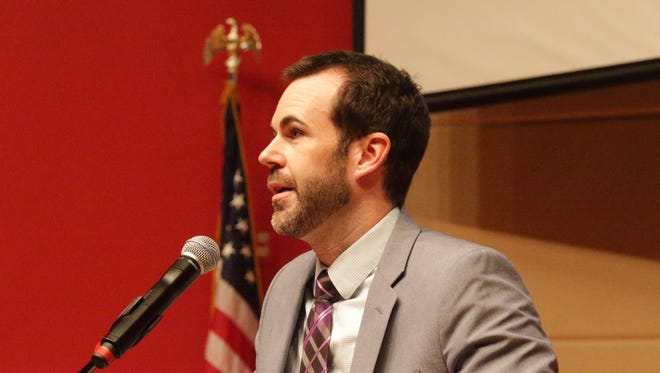rewrite the main part of
Humans are not born with the natural ability to read; our brains are only hard-wired for spoken language.
The skills that lead young Hoosiers to become competent, lifelong readers must be explicitly and systematically taught early in life with ample opportunity for practice and improvement. That’s why the “science of reading” — a vast body of research that details how the human brain learns to read and write — is so important.
In order for students to learn to read, we must ensure that our teachers learn how to teach using strategies grounded in the science of reading. Earlier this year, Indiana lawmakers passed legislation calling for a review of teacher preparation programs in our state to determine whether they are training aspiring teachers using the science of reading.
The new law couldn’t come at a more critical time.
The National Council on Teacher Quality (NCTQ) recently released a report giving educator preparation programs at two of the largest teachers colleges in the state an “F” grade for not introducing key concepts related to evidence-based reading instruction.
ILEARN scores:Marion County schools’ ILEARN scores improve slightly in math, remain steady in English
Just 22% of the 18 programs evaluated earned an “A,” meaning they adequately teach all five components of reading and provide little or no instruction on content contrary to research-based practices. Only Marian University here in Indianapolis earned an “A+” rating.
We join together to urge the effective implementation of the state’s new literacy law so the institutions that are educating our future educators know they must act quickly to bring teacher preparation programs up to speed.
Under Indiana’s new literacy law, next year the Indiana Department of Education (IDOE) will review accredited educator preparation programs specifically for whether curriculum and teaching practices align with the science of reading.
The IDOE can require an improvement plan from any institution falling short in its instruction around teaching literacy. The department also can revoke state accreditation from educator preparation programs that fail to meet requirements. These may seem like steep penalties, but we have no time to lose.
According to the National Assessment of Education Progress, often referred to as the “Nation’s Report Card,” only one-third of Indiana fourth graders are reading proficiently.
Little improvement in ILEARN scores:ILEARN 2023: Indiana students make little progress toward post-pandemic learning recovery
Indiana is among many states that have adopted or are in the process of adopting robust science of reading laws this year. We know there are many ingredients that go into the yearslong process of successfully implementing new curricula, certifying literacy coaches and ensuring schools have the support they need to communicate these changes within the classroom as well as to parents and families.
But we also know sustainable improvements in literacy rates require states to implement new policies with fidelity.
More:These suburban Indianapolis districts have Indiana’s top ILEARN math, English scores
In 2002, Florida was the first state to adopt a comprehensive literacy policy that became a model for the nation. As a result of the law, Florida increased its NAEP fourth grade reading scores by 13 points between 2002 and 2015 — the equivalent to an improvement of one-and-a-half grade levels.
Mississippi followed the Sunshine State’s lead, adopting a comprehensive literacy law in 2013 that has led the state to jump from 49th to 21st in fourth grade reading over the last decade.

Teacher preparation is a critical piece of the solution. These ratings may cause discomfort in the short term. However, for Indiana to see the kind of improvement realized in states like Florida and Mississippi, we must ensure our colleges and universities are developing quality courses and content while holding future educators to a high standard.

With the right training and curricula, Hoosier educators will be prepared to help our youngest learners begin their reading journeys and set them up for lifelong success.
Justin Ohlemiller is executive director of Stand for Children Indiana. Jasmin Shaheed-Young is president and CEO of RISE INDY.
between 300 to 1000 words in html format and use paragraphs and subheadings with h3 tags.
 Mind Uncharted Explore. Discover. Learn.
Mind Uncharted Explore. Discover. Learn.

